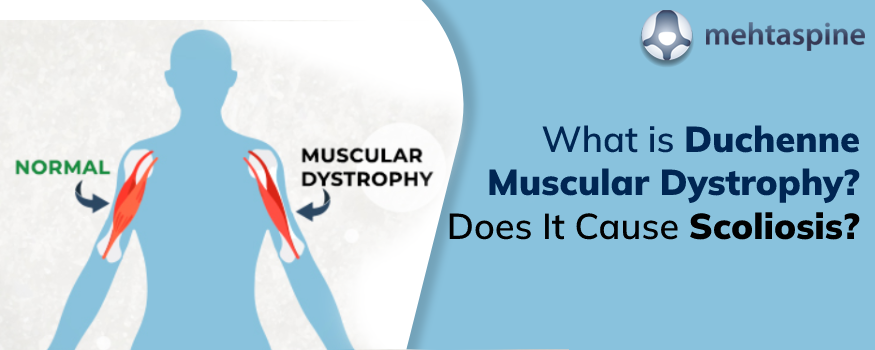What is Duchenne Muscular Dystrophy? Does It Cause Scoliosis?
Duchess Muscular Dystrophy is a genetic disorder that results in progressive muscle generation and weakness. A multi-systemic condition, DMD can affect multiple parts in the body over time deteriorating the lungs, heart and skeletal muscle.
Muscular dystrophies in general are genetic disorders that gradually weaken the muscles progressing and leading to a severe level of disability over time. There are many types of Muscular Dystrophies, each with its symptoms and Duchenne Muscular Dystrophy is the most severe ad also most common type of Muscular Dystrophies. It is an early onset condition that usually occurs in boys.
On average, every year 100 boys are diagnosed with Duchess Muscular Dystrophy in the UK, says Children and Adult Spinal Surgeon Mr Jwalant S Mehta.
Duchenne Muscular Dystrophy – Causes, Symptoms & Scoliosis:
Duchenne Muscular Dystrophy is caused due to lack of a protein called dystrophin which is essential for proper growth, functioning and repair of the human muscles.
Muscle building happens when the muscle fibres are hurt (exercise) and repair themselves in the presence of vital nutrients. Lack of dystrophin results in muscles losing their ability to repair themselves resulting in loss of function and strength.
Symptoms & Progression of Duchenne Muscular Dystrophy:
Since Duchenne Muscular Dystrophy is an early onset condition that commonly shows up in infants, activities like sitting, standing, walking or talking can be delayed. And children may not be able to keep up with peers as the condition progresses.
Progression of the condition may vary depending on the person. While the loss of strength, function, and flexibility are common symptoms, few children may experience deterioration of the heart, lung muscle tissues resulting in heart and breathing problems. Few children may also face learning and cognitive difficulties due to the lack of dystrophin in the brain.
Duchenne Muscular Dystrophy & Scoliosis:
Scoliosis is another serious problem that is suffered by muscular dystrophy patients. With more than 75% incidence, Scoliosis is much more common in DMD patients when compared to other types of muscular dystrophies.
As the muscle degenerates and the patient loses his stability and function, the spinal curve progresses, resulting in pelvic tilting and sitting problems. When combined with progressive weakening of respiratory muscles, pulmonary insufficiency may result in patients with DND. Braces do not tend to be effective in the cases when the curve is progressive often recommended by orthopaedic spine specialists in UK.
However, in recent medical research, cardiac drugs and pulmonary care were found to have negated the absolute necessity of the surgery for treating scoliosis in Duchenne Muscular Dystrophy patients.
Given the progression varies from patient to patient, it is recommended to consult an expert orthopaedic spine specialist in UK to get the right advice about the next steps.
If you are in the UK and are looking for scoliosis treatment in UK for DMD cases, then you can contact Children and Adult Spinal Surgeon Mr Jwalant S Mehta here:


